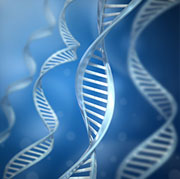But more questions than answers exist at this point
TUESDAY, April 14, 2015 (HealthDay News) — The strength of the placebo effect may depend on particular DNA, according to a report published online April 13 in Trends in Molecular Medicine.
Kathryn Hall, Ph.D., M.P.H., a research fellow in integrative medicine at Beth Israel Deaconess Medical Center and Harvard Medical School in Boston, and colleagues reviewed what’s known about placebo responsiveness and what pitfalls might arise as research continues. Already, Hall said, “we are finding that if presented in a positive context, patients benefit from placebo treatment even when they know it’s a placebo.” Other research has suggested that morphine has a more powerful effect in people who see it administered, Hall said.
The key appears to be the genes that carry the blueprint for dopamine and other chemical pathways in the brain, Hall said. These pathways affect how the mind deals with sensations and symptoms.
“We are learning that the natural variation in the genes…can confer varying levels of placebo response,” Hall said. As research on the “placebome” — genomic effects on placebo response — advances, many questions will arise, some of them practical, some ethical, the report indicates.
Full Text (subscription or payment may be required)
Copyright © 2015 HealthDay. All rights reserved.








